Same sex marriage? just give me Democracy
There are few conceivable contexts whereby one could say ‘I believe in democracy’ to a room full of Americans and get booed. Yet it happened last year when Presidential hopeful Ted Cruz was a guest on Stephen Colbert’s late night television program. ‘What I’m fighting for are simple principles: live within our means, stop bankrupting our kids and grandkids, follow the constitution,’ said Ted. ‘And no gay marriage,’ offered Stephen. Ted, whose moral position on marriage is that it is ‘a sacrament between one man and one woman’, opted to skip around his personal feelings on the question, and proceeded to make the case, with reference to the Tenth Amendment to the United States Constitution, that it was a matter for the states, and that if you want to change the marriage laws – ‘I’m asking what you want,’ interrupted Stephen. Ted replied with the above near un-boo-able sentence, only to cop a booing.
In Australia, the Prime Minister guarantees that if his government is returned to power at the coming election we shall have a plebiscite on the matter of same sex marriage. If polls, social media, mass media, and severe people at dinner parties are any indication, it seems certain that the vast majority of Australians would vote to enfranchise the homosexually inclined into the matrimonial institution. The strange circumstances by which we arrived at this point are well documented. Tony Abbott, in an attempt to stop a revolt on his left, made the plebiscite his policy. Malcolm Turnbull, in an attempt to stop a revolt on his right, did the same thing. However necessary for Coalition cohesion, public support for a direct democratic decision is no stronger in Australia than it was in the audience of Stephen Colbert’s show. Right wingers like Eric Abetz indicate that they’ll vote against the proposed legislature regardless of the national vote. Turnbull, who opposed the plebiscite when Abbott proposed it, is now, as he seemingly is with all things, an unenthusiastic advocate. The ‘Australian Marriage Equality’ (AME) advocate group, who stand to finally win the day, have issued a press release citing no fewer than six reasons they oppose the plebiscite. The reasons provided by the AME are not much chop. The first 4 reasons are especially bad: they argue that 1) ‘parliament can already make it happen’; 2) ‘parliament has the mandate’; 3) ‘a plebiscite will delay marriage equality’; and that 4) ‘a plebiscite won’t break the political deadlock’.
Points 1 and 4 cancel each other out. Either we can make it happen or we have a political deadlock, not both. Point 3 is absurd; it’s politically impossible for Turnbull to push the legislation through, so rather than ‘delay marriage equality’, it is the only thing that will speed it up under a Coalition government. Point 2 is, again, nonsense. No political party in Australia has gone to an election promising same sex marriage and won enough seats to form government, so no mandate exists at present. The next two points offered by the AME are more convincing. They are the financial cost of the vote, and the impact of the inevitable nastiness of the coming debate. Notably, they were the same points ex-editor of the Monthly, Sally Warhaft, recently cited on Tom Ballard’s Like I’m A Six-Year-Old podcast: ‘I’m out of my mind with the waste of money. It’s just a hideous waste of money. It’s going to get up, and I don’t want to have to listen to a debate about that any more than I want to listen to a debate about the science of climate change. It’s just a real shame’.
Defending any new expenditure in this economy is tough. However, it is worth noting that in the scheme of things the cost of the plebiscite is but a trifle. Estimates range from between 100-500 million dollars. Consider, however, that this is what we as a nation are paying as interest on our national debt every few days. If we want to meaningfully fix the budget, ditching the plebiscite is hardly the place to start.
That leaves only one point against the national vote. That is, that the national conversation we will have in the lead up to the plebiscite is going to be beastly. The AME cites studies from the US that indicate the mental health of ‘(LGBTI) people suffered significantly during referenda debates on marriage equality.’ As nasty and heartbreaking as free and open argument can be, the alternative may well be worse for gay rights activists. In the US, implementation of marriage equality by judicial decree has helped to electrify the anti-establishment campaigns of Trump and Cruz. It’s the sort of outcome that Turnbull is trying to stymie with a public vote. If he guaranteed a conscience vote for Liberal MPs without the plebiscite, it would almost certainly tear the liberal and conservative wings of his party apart.
I realise that I have, until this point, been just as coy as Ted about my personal feelings. Well, I shall hereby come out of the closet and confess that I really, really like voting. I like the placards, the ill-informed debates, the sausage sizzles – heck, even the standing in line! I like the sense of community, the chance to shape public policy, the flicking back and forth between Sky News, the ABC, and whatever it is that Karl Stefanovic is trying to pass off as journalism. If a politician proposed that we all had to vote every single day of the week, I’d vote for it. It would be far easier on our feelings and the nation’s coffers if we dispensed with representative government, and just let a small executive of forward thinking individuals (or perhaps a computer) decide on the most prudent way to organise our country. If a camel is a horse designed by a committee, then heaven help the country designed by 16 million registered voters. Maybe we can’t afford it, and maybe we already know how the country is going to vote, and maybe it will be the cause of profound mental anguish, but hell, I believe in democracy.
Got something to add? Join the discussion and comment below.
Get 10 issues for just $10
Subscribe to The Spectator Australia today for the next 10 magazine issues, plus full online access, for just $10.
You might disagree with half of it, but you’ll enjoy reading all of it. Try your first month for free, then just $2 a week for the remainder of your first year.

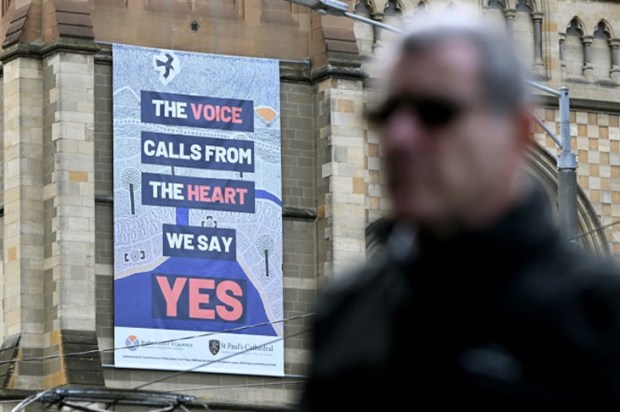
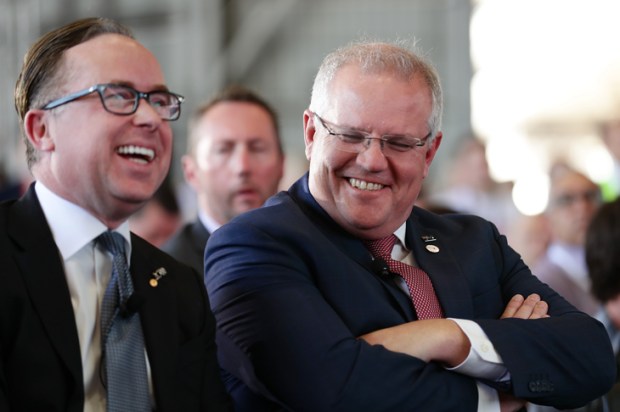
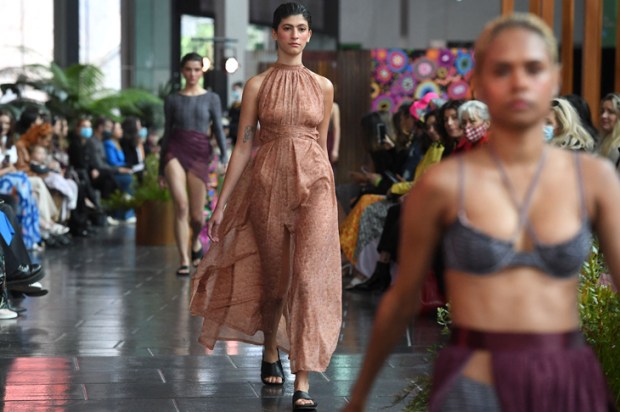
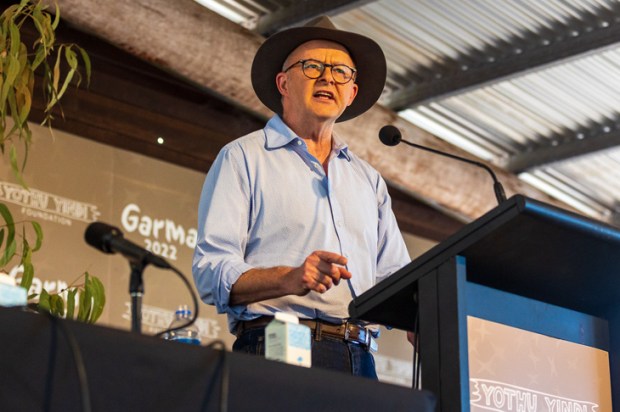
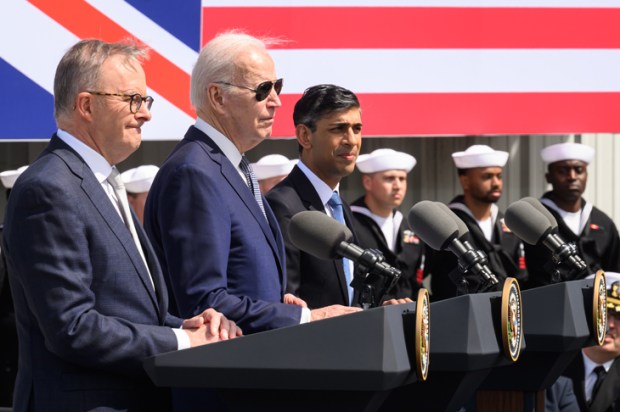
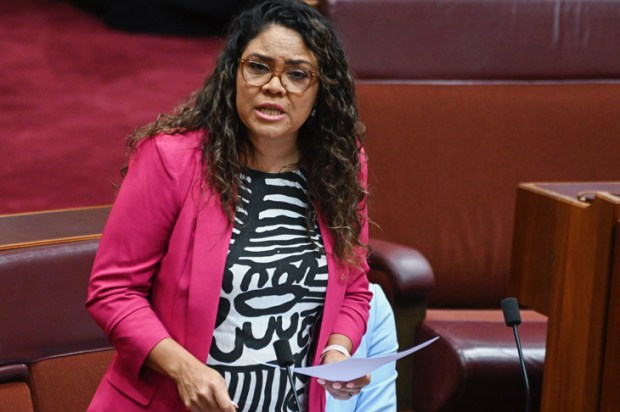






Comments
Don't miss out
Join the conversation with other Spectator Australia readers. Subscribe to leave a comment.
SUBSCRIBEAlready a subscriber? Log in